
A dental crown may be needed in the following situations:
For children, a crown may be used on primary (baby) teeth in order to:
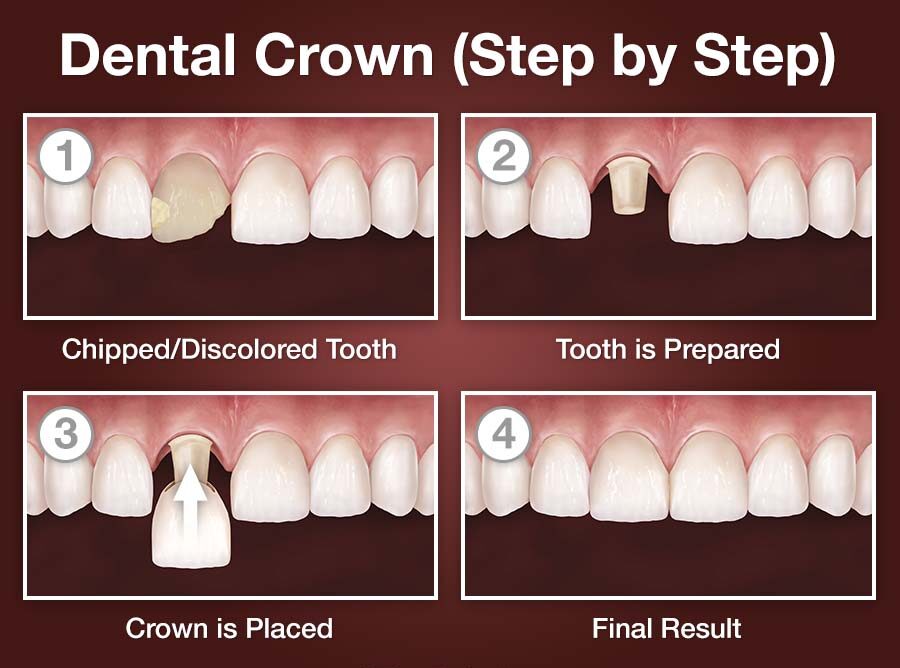
Teeth Capping Procedure:
If you need a dental crown, it may take your dentist a few visits to finish the treatment. On your first visit, if necessary, the dentist will numb the area around the tooth to keep you from feeling any pain. Then, the dentist uses tools to shape and prepare the tooth so that the crown fits well.
Sometimes, extra steps are needed to make sure the crown fits well and stays in place. For example, a build-up may be needed to help support the crown, or the crown may need to be lengthened to increase the height and surface area of the remaining tooth structure.
After the tooth is cleaned and prepared according to standard procedures, a mold of the tooth is made and a temporary crown is put on the tooth to protect it until the permanent crown arrives from the dental lab.
The mold or cast is sent to a dental lab, where a crown is made to fit the size and shape of the teeth.
Once the lab sends the crown to the dentist’s office, you’ll be able to get yours delivered. If you like the shape, color, and fit of your crown, it will be glued in place for good on your second visit. But the crown you get from the lab might not fit as well as the doctor and you had hoped. To get the best results, another mold or bite is made and changed or replaced to make sure the fit, bite, and looks are right.
Even though it’s rare, you might feel some pain, soreness in your gums, and a raised bite for a few days. This usually goes away on its own, but you might need to make some minor adjustments.
Temporary Dental Crowns:
The temporary caps are usually only worn for a few days to a few weeks. They are mostly made of a soft, tooth-colored resin (acrylic). These caps are soft, porous, and easy to cut. You can carve them in your chair.
As a temporary prosthesis, PMMA Dental Crowns (Poly Methyl Methacrylate) is used now. These crowns are made with CAD/CAM technology. When compared to acrylic crowns, these look better and are stronger.
As the name suggests, temporary caps are only used for a short time while the permanent prosthesis is being made.
Uses of Temporary Dental Caps:
Permanent Dental Crowns:
These are the final replacements for teeth that are given to make the tooth structure work and look good. Because of progress in science and technology, we now have a wide range of permanent dental caps. You can choose the right dental cap based on your needs, the material, the technology, and the Dental Crown cost.
The Different types of crown based upon materials that are widely used in Dentistry in India are:
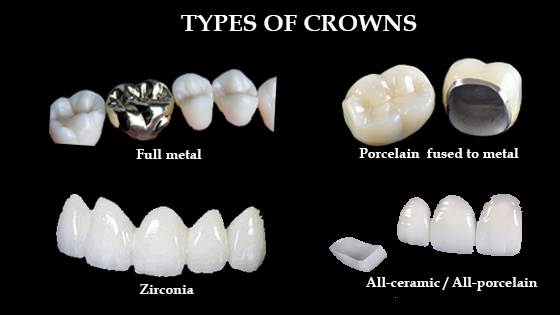
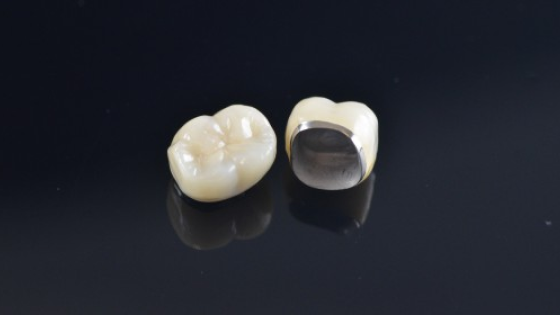
These are the dental crowns that people in India use most often. They are made of metal on the bottom, which gives them strength, and tooth-colored porcelain on top, which gives them a nice look.
Metal Base is made by lost wax technique or CAD/CAM technique
Advantages of PFM Teeth Caps
Disadvantages Of PFM Teeth Caps
Advancements in PFM Crowns
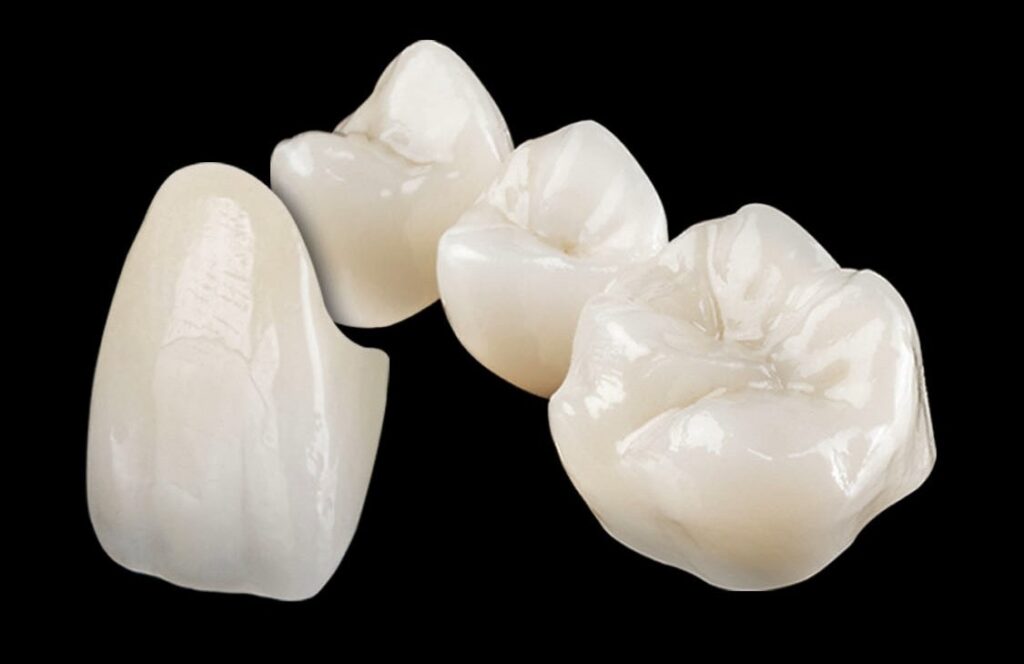
Zirconia Dental Crowns
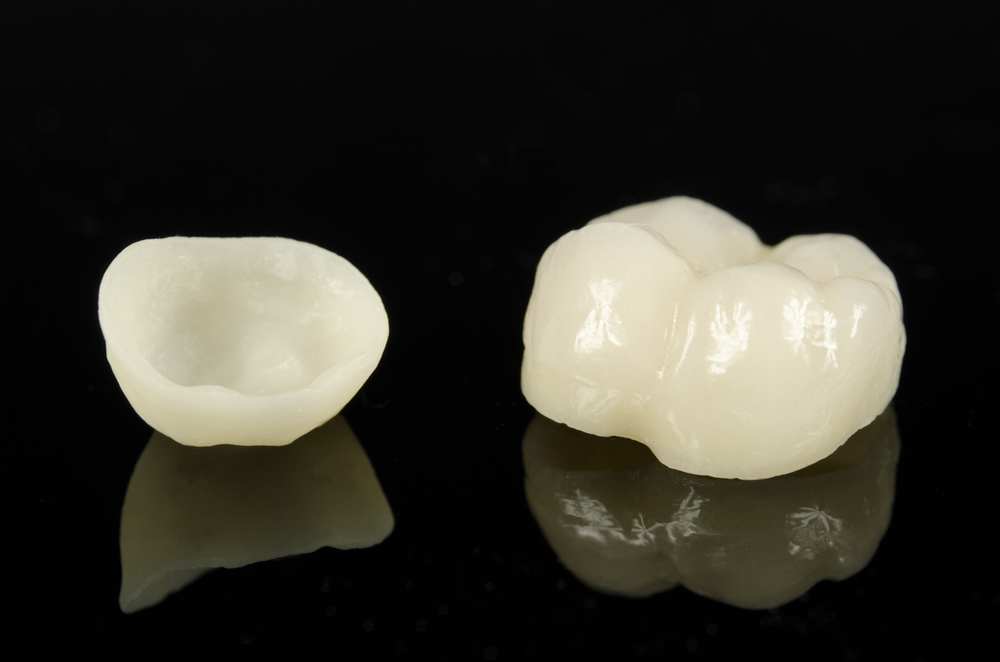
All-Ceramic Dental Crowns
Advantages Of All-Ceramic Teeth Caps
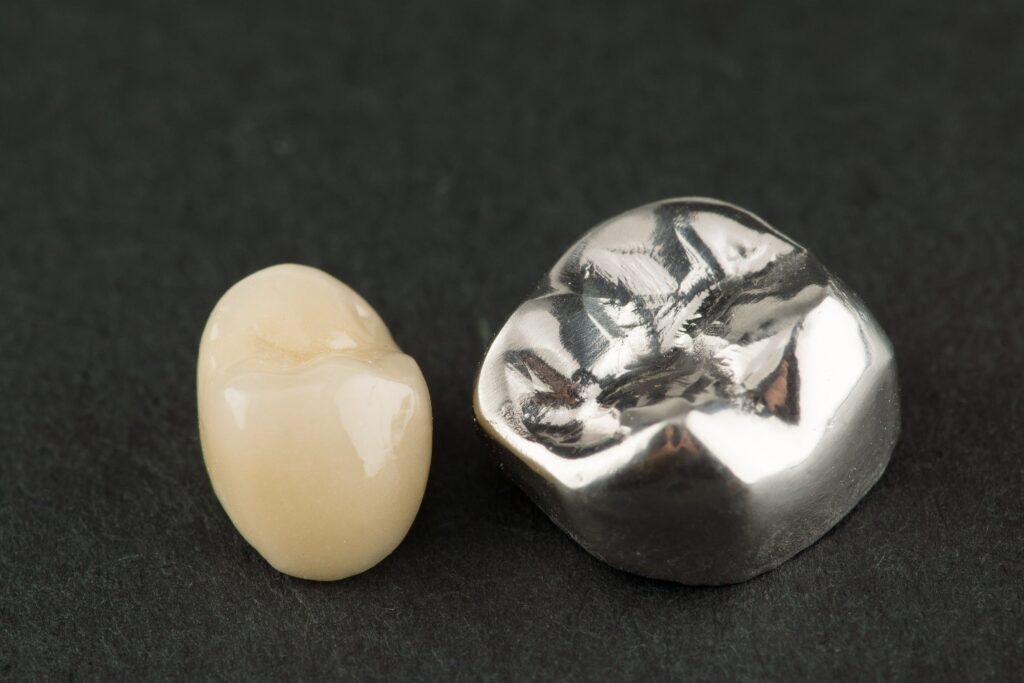
Metal Crown
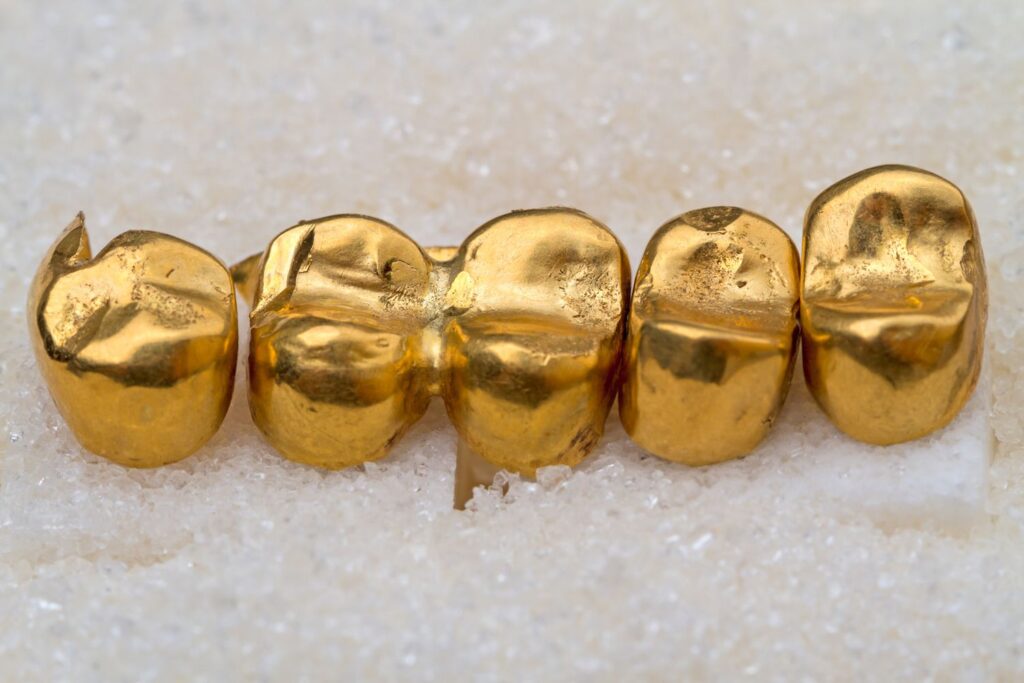
Metal Crown
There are different names for gold dental crowns. They are strong and durable, and you don’t have to do much to your teeth to get ready for them.
The main problem with gold tooth caps is that they are expensive because gold prices are high and they need 4-6 gms of gold on top of the cost of making them. They are also only used on the back teeth because they don’t look good.
Teeth Caps for Kids Milk Teeth
Stainless Steel Crowns
Techniques Involved In Manufacturing Of Teeth Caps
Cost based on Teeth Cap Material:
All-ceramic and Zirconia caps cost more than porcelain fused to metal or all-metal crowns, which has already been talked about.
The cost of porcelain fused to metal and metal caps also depends on the type of metal used. For example, titanium alloys and precious metal alloys are more expensive than Co-Cr alloys.
Cost based on Technique of Manufacturing:
When it comes to price, dental crowns made with CAD/CAM are more expensive than those made by hand with molten wax.
Warranty on Dental Caps:
Today, dental labs offer warranties on dental crowns that last from 5 to 15 years or even for life, and the price goes up with the length of the warranty.
Additional Procedure: Sometimes, to get the best results, extra procedures like crown lengthening, extra fillings, and tooth buildups are needed. These may cost more in terms of time and materials.
The Average Cost of Dental Crowns in Mumbai India may range from 2500-15000 INR.
Are Dental Crowns Safe With Diagnostics like CT Scan & MRI
Medical imaging is a very helpful way to figure out what’s wrong with a person, and patients often have to go through this kind of test. People often ask if dental caps are safe with these new imaging machines.
To answer this question, we need to know how CT scans and MRIs work.
Computed Tomography Scans and Dental Caps:
Magnetic Resonance Imaging(MRI) and Dental Caps:
MRI is a very useful diagnostic tool that uses strong radio waves and magnetic fields to make pictures of body tissue and organs. When magnetic forces hit dental materials, it can sometimes lead to Projectile accidents, Prosthesis Failure, Thermal Heating, and Visual Artifacts.
MRI does not work with cobalt-chromium or stainless steel.
When possible, choose All-Ceramic caps or Zirconia caps over Metal caps or Metal Ceramic caps for safe MRI scans.
Most of the time, a crowned tooth doesn’t need any extra care. However, it’s important to remember that just because a tooth is capped doesn’t mean it’s always safe from decay or gum disease. So, to keep your smile healthy and beautiful, do things like brushing your teeth and flossing every day.
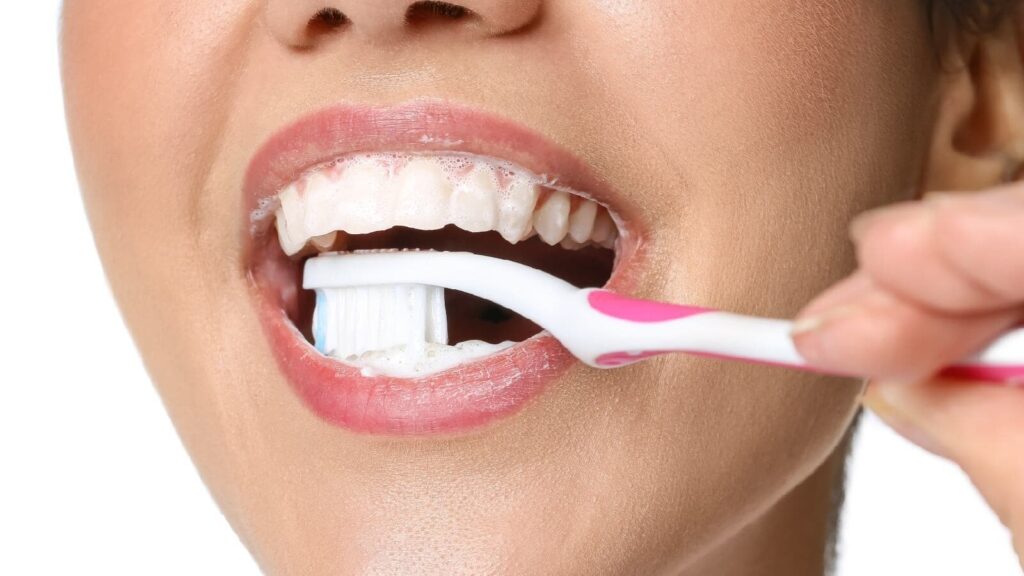

To know more about Dental Crown and Oral health-related issues contact or book an appointment with Dr. Karve Leading Cosmetic Dentist in Mumbai for Dental Crown & Bridge Work.
Vasant Vihar,
Thane(W)
Get Directions
Ph. +91 8928901299 / 022-41008572
Ram Maruti Road,
Thane(W)
Get Directions
Ph. +919372936590 / +91-22-25400086
Ghodbunder Road,
Thane(W)
Get Directions
Ph. +91 81047 91088 / +91-7977093028
Kopri,
Thane(E)
Get Directions
Ph. +91-22-25400086
Hiranandani Powai,
Mumbai
Get Directions
Ph. +91 79-77150852 | +91-8976654210
